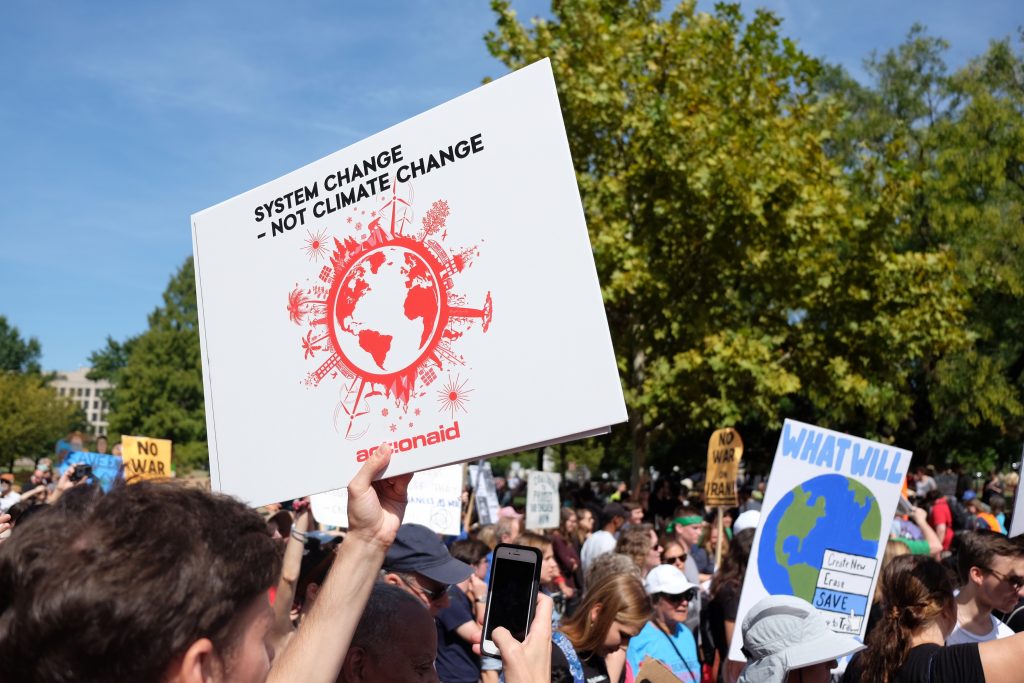This is a guest blog by Mitchell Tropin, Executive Vice President of SEIU 500.
ActionAid USA staff are proud members of SEIU 500.
The climate crisis demands a response proportional to the threat. Climate action needs to start now, and emissions need to be cut dramatically and quickly.
Addressing the crisis will require sweeping changes in every sector of the economy, from transportation to agriculture. And in order to make this systemic transformation work, we must make sure we’re not leaving any worker behind.
For generations, fossil fuel workers, workers in the airline industry, and farmworkers have been trying to make a decent living. Often, they suffer disproportionately from the negative environmental impacts of mining and industrial agriculture.
Ensuring a just transition – protecting retirements, offering real retraining, investing in communities’ economic futures, and securing union jobs – doesn’t just benefit workers. It’s essential to building a better and more just future for everyone.
The kind of systemic change we need to fix the climate crisis is only possible if social support for workers is also guaranteed.
That’s why policies like the Green New Deal (GND) include a just transition as a core value and organizing principle. Some critics have called its social provisions, such as universal healthcare and a job guarantee, “extras” or “wish list items” that detract from the primary goal of cutting emissions. But this criticism is misguided: cutting emissions is simply not politically feasible, nor just, without ensuring social protections as the economy is transformed.
The Green New Deal seeks to create an economy that is environmentally sound, economically viable and socially responsible. Besides seeking timely action to solve the climate crisis, it would move the country toward a goal of net-zero emissions and 100% renewable energy by 2030. But it doesn’t stop there. The GND also includes an “Economic Bill of Rights” – the right to single-payer healthcare, a guaranteed job at a living wage, affordable housing and free college education.
The Economic Bill of Rights would ensure all citizens the right to employment through a Full-Employment Program that will create 20 million jobs by implementing a nationally funded, but locally controlled, direct-employment initiative.
The climate crisis is a serious threat to our very survival. To prevent catastrophe, we need a large-scale mobilization to shift our country and the world to a sustainable economy – one with 100% clean energy, public transit, and sustainable agriculture.
But we have decades of evidence to show that focusing only on cutting emissions won’t work. The only way we’ll get the climate action we need is to ensure a just transition for workers, and indeed for everyone.

